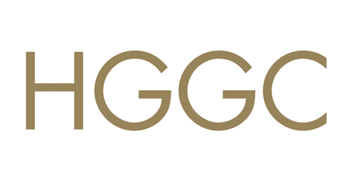The Asta Interview with Lorraine Harfitt
29th February 2024

In the latest Asta interview with Lorraine Harfitt, our CEO, we cover a wide range of topics related to her career, the insurance industry, and her leadership of Asta. We discuss the challenges and opportunities in the sector, Asta’s unique position as the leading third-party managing agent and her vision for Asta’s future growth and success. Lorraine also touches on her own career, underlines the importance of diversity and inclusion and softer skills like stakeholder management as being increasingly vital for modern CEOs.
Could you share the story of your career from Lloyd’s Chatham to becoming the CEO of Asta?
Insurance was never my dream career at school. I actually wanted to be a teacher but after spending a summer doing an internship at the local high street bank, I was offered a role with them and that set me off on a different path. A couple of years later I moved to Kent, where Lloyd’s Chatham was a significant local employer and I joined their Membership department, knowing very little about Lloyd’s or insurance. After about two and a half years there I was offered an opportunity to work for a Members’ agency and I continued in that role for about 14 years, witnessing numerous mergers, acquisitions, and changes in the landscape.
After a career break, and yet another acquisition, I left and returned to Lloyd’s this time in London and began working on the implementation of ICAS (Individual Capital Adequacy Standards) when Lloyd’s first introduced them. That experience then paved the way for me to lead the reviews of ICAS capital models, which eventually led to my involvement in Solvency II implementation across the market.
Alongside this, Lloyd’s sponsored me to attend the Lloyd’s leadership course at London Business School and this really helped give me the confidence to step up and lead the Solvency II project. When the project concluded, there wasn’t a clear next role for me at Lloyd’s but that’s when Asta approached me and how I ended up here.
I’ve now been at Asta for just over 10 years, initially in a risk and regulatory role, moving quickly to COO, then MD, and about 18 months ago, I became CEO.
From your perspective outside of Lloyd’s, what do you see as the main strengths of being a part of the Lloyd’s market, especially for start-ups?
Being part of Lloyd’s still carries a significant reputation and brand value. The Lloyd’s brand has substantial weight and is appealing to new entrants, particularly start-ups. It is seen as more willing to embrace change compared to some other markets. Initiatives like the Lloyd’s Lab and the Syndicate in a box (SIAB) framework demonstrate Lloyd’s commitment to facilitating innovation and enabling entry for smaller entities. Parsyl, managed by Asta, are a great example of this, having joined the Lab in 2018 before launching a SIAB in 2020.
The global license network provided by Lloyd’s is another advantage, saving start-ups the trouble of setting up operations worldwide. Additionally, the syndicated model plays a crucial role in attracting clients, as it fosters a sense of collaboration within the market.
How important is underwriting experience to today’s insurance CEO?
I believe that the role of a CEO is evolving, with a growing focus on softer skills like stakeholder management, both internal and external. While underwriting, actuarial, or accounting experience can be valuable, they are not strict prerequisites for the role. Ultimately, for the modern CEO it’s about effectively managing relationships and people and setting the tone for culture, whilst of course looking after the business and its financials.
How is Asta different to the average Lloyd’s managing agent?
The key distinction is that we are a third-party managing agent, meaning we don’t assume underwriting risk or have our own capital at risk. We provide managing agency framework and oversight to syndicates that lack these capabilities. We maintain complete independence and ensure that each client’s operations are entirely segregated, avoiding any conflicts of interest.
Asta offers a range of services tailored to each client’s needs. Could you tell us more about that?
We conduct a minimum level of oversight and governance that applies to all managed clients. Outside of that, the offering is bespoke and tailored to the needs of each individual client. Some clients, particularly those within larger groups with their own operational infrastructure, require little day to day operational support whilst on the other end of the spectrum, we work with start-ups and SIABs that do not have a lot of infrastructure. For them, we handle tasks like reporting, compliance, and risk management. It’s essentially a menu of services tailored to the scale and maturity of each client.
What are the biggest challenges and opportunities you’re seeing in the industry now?
The industry is always changing, but what’s on our radar now is a focus on more subjective things like ESG and culture. These provide opportunities for differentiation and doing things differently but also challenges in terms of attitudes and appetites. These behaviour-driven changes take longer to implement than technical changes. Diversity and inclusion remain a challenge in the market – it’s definitely getting better but not quite there yet. Innovation is a constant topic, especially with the rise of tech and AI. Blueprint II is also a challenge for the market; how ready is it for that change? Trying to get the market to move as one can be quite challenging due to differing strategies and priorities.
How has Asta’s strategy evolved as the market has changed?
Our strategy hasn’t evolved wildly; we’re not doing anything crazy and managing underwriting businesses remains our key focus. The principal part of our business is the managing agency which represents about 90% of what we do. In recent years, we’ve expanded launching our MGA platform, AUML, and platforms like Asta Europe and Asta Asia in Singapore to facilitate client needs. Our business model has changed as a result. It’s less about a quick turnaround and more about partnering with clients to support their longer-term strategic ambitions. The average client tenure with us now is more like five to seven years, and some clients have no ambition to have their own managing agency. The financial viability threshold for having your own agency has increased over recent years as regulation expands and means that it’s more challenging and costly now.
Does the acquisition by Davies change much for Asta?
Davies bought into our existing three to five-year strategy and growth plans at the point of acquisition. There has been no challenge to deviate from that, and Asta remains a standalone entity within the Davies group. The transaction was beneficial for both sides – Davies extend their platform to Lloyd’s, and Asta and our clients benefit from their service offerings and depth of resources.
Eighteen months on from your appointment, how does it feel to be the only female CEO in the market?
I have mixed feelings. To be the only female managing agency CEO among over 55 managing agents is disappointing from a D&I perspective, but it also feels like an honour and an achievement for me personally. It does feel though, like there’s more pressure; it’s not just about whether it works but there’s also pressure from being seen as a role model for others and showing it can be done. I don’t want to be thought of as just a female CEO; I want to be the CEO because I deserve to be in that role and have the necessary skills and experience.
What more does the market need to do to get more women at senior levels?
Two thirds of our board and over 50% of our Senior Management Team are female but that’s because we’ve chosen the best person for the role, regardless of gender or other factors. Personally, I don’t believe in setting targets or quotas as it can lead to the wrong people being placed in roles. However, I can see that it will help initially to get more women in senior positions. There’s more to be done, but we and the wider market are making progress – and there is now a good foundation for building greater diversity of all kinds across the market in the future.
For those embarking on their careers or seeking career development, what advice would you offer?
Confidence in your abilities is paramount. It’s not about being overly confident, but rather about being comfortable and self-assured in your knowledge. Regardless of your background or the seniority of the people in the room, don’t hesitate to speak up and share your ideas. Sometimes, the unspoken things are the most crucial, and having the confidence to voice your thoughts can make a significant difference.
I would also advise not to limit yourself to a single career path. In today’s dynamic job market, it’s essential to be open to different roles and projects that broaden your skill set. We’ve encouraged this at Asta, with several team members transitioning into different roles. While it may seem challenging at times, it’s essential to take the long-term view when making career decisions. Don’t focus solely on immediate financial or status gains; instead, consider how each opportunity contributes to your long-term goals.
Additionally, networking and mentoring are invaluable resources. Many professionals are willing to provide guidance and share their experiences, so make the most of these opportunities. Organisations like LMA and LMG offer programs like mentoring schemes that can be immensely beneficial.
What is your most interesting quirk?
People might not necessarily know that I’m a massive football fan. I like football in general. My husband supports a small non-league team, while my son is an Arsenal fan, and I like everything in between. I suppose my quirk would be that if I was a member of your quiz team, I could answer a question on which teams play at Blundell, Boundary, Central, Home and Prenton Parks…
I’m also a quite decent pool player.
What’s on the horizon for Asta and you personally?
For Asta, it’s about maintaining our success and our growth momentum. We’ve expanded significantly, managing 17 syndicates compared to the initial six when I started but its hugely important to make every client feel valued. I intend to ensure Asta remains the leading third-party managing agent. I’d also like to see a change in how third-party management is viewed, where it’s not just a necessity but a choice driven by the value of a strategic partnership.
On a personal note, I’m eighteen months into my role as CEO, and I plan to continue in this capacity for the next few years, hopefully making a positive impact during my tenure. I hope to leave Asta in a better place than I found it and that my role inspires other women to pursue leadership positions. In a few years, I’d love to see more female CEOs in managing agencies.
If I achieved all of that, it wouldn’t be bad for a girl from Cowdenbeath.
If you would like to continue the conversation, get in touch with Chief Executive Officer of Asta, Lorraine Harfitt at l.harfitt@asta-uk.com
Related Articles
-
- Interview
- Claims Solutions
Post Magazine blog: Innovation in the claims process
Our Property MD Mark Grocott talk to Post Magazine about innovation…
-
- Interview
- Insurance Solutions
Blog: Attracting diversity into a diverse industry
Lesley Johnson talks to Post Magazine about attracting diversity to the…
-
- Article
- Insurance Solutions
Davies attends CII Graduate Insurance Event
Yesterday our Training Manager Kaylee and one of our Graduates Chris…
-
- Article
- Technology
Davies Group announces major investment from HGGC
Davies Group has announced that US private equity firm HGGC has…



